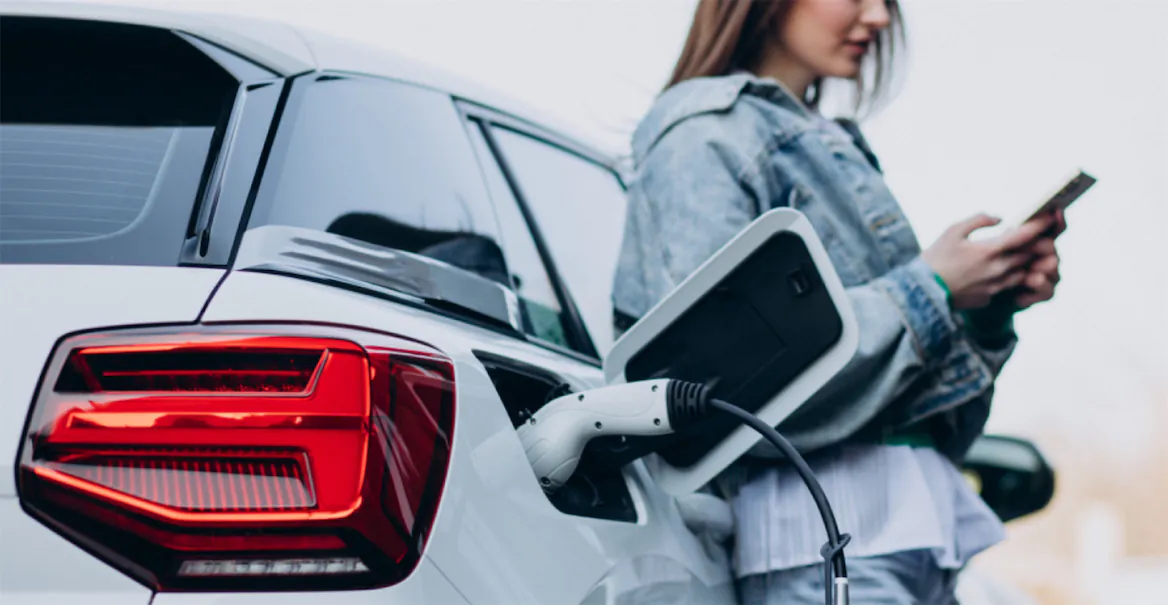In recent years, there has been a notable surge in the adoption of electric vehicles in California. With an increasing emphasis on environmental sustainability and the push towards reducing greenhouse gas emissions, EVs have gained significant traction among consumers. From sleek sedans to versatile SUVs and cutting-edge electric trucks, the market for electric vehicles continues to expand, offering a wide range of options to meet diverse transportation needs.
California, in particular, has emerged as a leading market for electric vehicles, thanks to supportive government policies, robust infrastructure investments, and a strong commitment to combating climate change. The state’s Zero Emission Vehicle (ZEV) mandate, which requires automakers to sell a certain percentage of electric and other zero-emission vehicles, has further accelerated the adoption of EVs in California.
As more consumers embrace electric vehicles as a cleaner, more sustainable mode of transportation, it’s essential to understand how the California Lemon Law applies to these innovative automobiles. Despite their advanced technology and environmental benefits, electric vehicles are not immune to defects or issues that may qualify them as lemons under the law. Therefore, knowing your rights and protections as an electric vehicle owner is paramount to ensuring a satisfactory ownership experience.
Understanding the California Lemon Law
The California Lemon Law, formally known as the Song-Beverly Consumer Warranty Act, serves as a crucial protection for consumers who unknowingly purchase defective vehicles. Its primary purpose is to provide recourse for buyers who find themselves burdened with significant defects or issues that substantially impair the use, value, or safety of their vehicles. Under this law, consumers are entitled to remedies such as a replacement vehicle or a refund of the purchase price if their vehicle meets the criteria for being deemed a “lemon.”
One of the key strengths of the California Lemon Law is its broad coverage, which extends to all types of vehicles sold or leased in the state, including electric vehicles (EVs). Whether you drive a conventional gasoline-powered car, a hybrid, a plug-in hybrid, or an all-electric vehicle, you are entitled to the same lemon law protections.
Electric vehicles, with their advanced technology and unique propulsion systems, are subject to the same standards and criteria under the California Lemon Law as traditional vehicles. If an electric vehicle experiences significant defects or issues that substantially impair its use, value, or safety within the specified warranty period, the owner has the right to seek remedies under the lemon law.
Unique Considerations for Electric Vehicles
Electric vehicles differ from traditional gasoline-powered cars in several significant ways. They are powered by electric motors and rely on rechargeable batteries for energy storage, rather than internal combustion engines. This difference in propulsion systems can impact how defects manifest and are addressed in electric vehicles.
Potential Defects Specific to Electric Vehicles
While electric vehicles offer numerous advantages, such as lower operating costs and reduced emissions, they are not immune to defects or issues. Some potential defects and issues specific to electric vehicles include:
Battery Degradation: Over time, the capacity and performance of an electric vehicle’s battery may degrade, leading to reduced driving range and overall vehicle performance.
Charging System Malfunctions: Problems with the vehicle’s charging system, including issues with the charging port, onboard charger, or charging cable, can affect the vehicle’s ability to charge and operate properly.
Software Glitches: Electric vehicles rely heavily on software to control various functions, including battery management, regenerative braking, and energy efficiency. Software glitches or bugs can lead to unexpected behavior or malfunctions in the vehicle’s systems.
Electric Motor Issues: Like any mechanical component, the electric motor in an EV can experience defects or failures that affect its performance and reliability.
Range Anxiety: Concerns about range anxiety, or the fear of running out of battery charge before reaching your destination, can be a significant issue for electric vehicle owners and may impact their overall satisfaction with the vehicle.
Specialized Repair and Maintenance Requirements
Electric vehicles have unique repair and maintenance requirements compared to traditional gasoline-powered cars. Specialized training, tools, and equipment are often needed to diagnose and repair issues related to electric propulsion systems and battery technology. As a result, it’s essential for EV owners to work with qualified technicians who have experience working on electric vehicles.
Additionally, regular maintenance tasks such as battery health checks and software updates are essential for ensuring the continued reliability and performance of an electric vehicle. Failure to adhere to recommended maintenance schedules could potentially void warranty coverage or exacerbate existing issues.
Qualifying Criteria for Lemon Law Protections for Electric Vehicles
Criteria for Determining if an Electric Vehicle is a Lemon
Significant Defects: To qualify as a lemon, an electric vehicle must have one or more significant defects or issues that substantially impair its use, value, or safety. These defects must occur within the specified warranty period, typically during the first 18 months or 18,000 miles of ownership, whichever comes first.
Repair Attempts: The manufacturer or authorized dealership must be given a reasonable number of attempts to repair the defects. If the defects persist after a reasonable number of repair attempts, the vehicle may be deemed a lemon.
Days Out of Service: Alternatively, if the electric vehicle has been out of service for a cumulative number of days due to repair attempts, it may also qualify as a lemon. In California, this threshold is typically 30 days or more within the first 18 months or 18,000 miles of ownership.
Thresholds for Significant Defects Affecting the Performance or Safety of Electric Vehicles
Battery Performance: Significant degradation in battery capacity or range that affects the vehicle’s usability or driving range.
Charging System Reliability: Issues with the vehicle’s charging system, such as frequent charging failures or inability to charge properly, which impede the vehicle’s ability to operate.
Motor or Powertrain Malfunctions: Defects in the electric motor or powertrain components that affect the vehicle’s acceleration, handling, or overall performance.
Safety Systems: Malfunctions in safety-critical systems such as braking, stability control, or airbags that pose a risk to driver or passenger safety.
Documentation and Record-Keeping Requirements Specific to EV Lemon Law Claims
Service Records: Keep detailed records of all repair attempts, including dates, descriptions of the defects, and invoices or work orders from the dealership or repair facility.
Communication: Document all communications with the manufacturer or dealership regarding the defects, including emails, letters, or phone calls.
Vehicle History: Maintain records of the vehicle’s purchase or lease agreement, warranty documentation, and any previous repairs or maintenance performed.
Logs of Days Out of Service: Keep a log of the days the vehicle has been out of service due to repair attempts, including dates and reasons for downtime.
Steps to Take if You Suspect Your Electric Vehicle is a Lemon
Notify the Manufacturer or Dealership of the Issues
As soon as you identify significant defects or issues with your electric vehicle, notify the manufacturer or authorized dealership in writing. Clearly describe the problems you’re experiencing and request repairs under warranty.
Pursue Resolution Options
– Repair Attempts: Allow the manufacturer or dealership a reasonable number of repair attempts to fix the defects. In California, the manufacturer typically has four attempts to repair the same issue, or the vehicle is out of service for 30 days or more within the first 18 months or 18,000 miles.
– Replacement: If the defects persist despite repair attempts, you may be entitled to request a replacement vehicle of comparable value and specifications.
– Refund: Alternatively, you may choose to seek a refund of the purchase price, including taxes, fees, and any associated costs, minus a reasonable allowance for vehicle use.
Consider Unique Aspects of Electric Vehicles
When pursuing resolution options for your electric vehicle, consider the unique aspects of EVs, such as battery technology and charging infrastructure. Ensure that repair attempts address issues related to the electric propulsion system, battery performance, and charging system reliability.
Understand Arbitration and Legal Action Options for EV Lemon Law Claims
If the manufacturer or dealership fails to resolve the issues satisfactorily, you may pursue alternative dispute resolution methods such as arbitration. Arbitration is a less formal process than litigation and may result in a faster resolution.
If arbitration does not yield a satisfactory outcome, you have the option to pursue legal action through the court system. A lemon law attorney experienced in handling electric vehicle cases can assist you in navigating the legal process and advocating for your rights.
Document Everything
Throughout the lemon law process, keep detailed records of all communications with the manufacturer or dealership, including repair attempts, correspondence, and documentation of days out of service. Thorough documentation strengthens your case and provides evidence of your efforts to resolve the issues.









